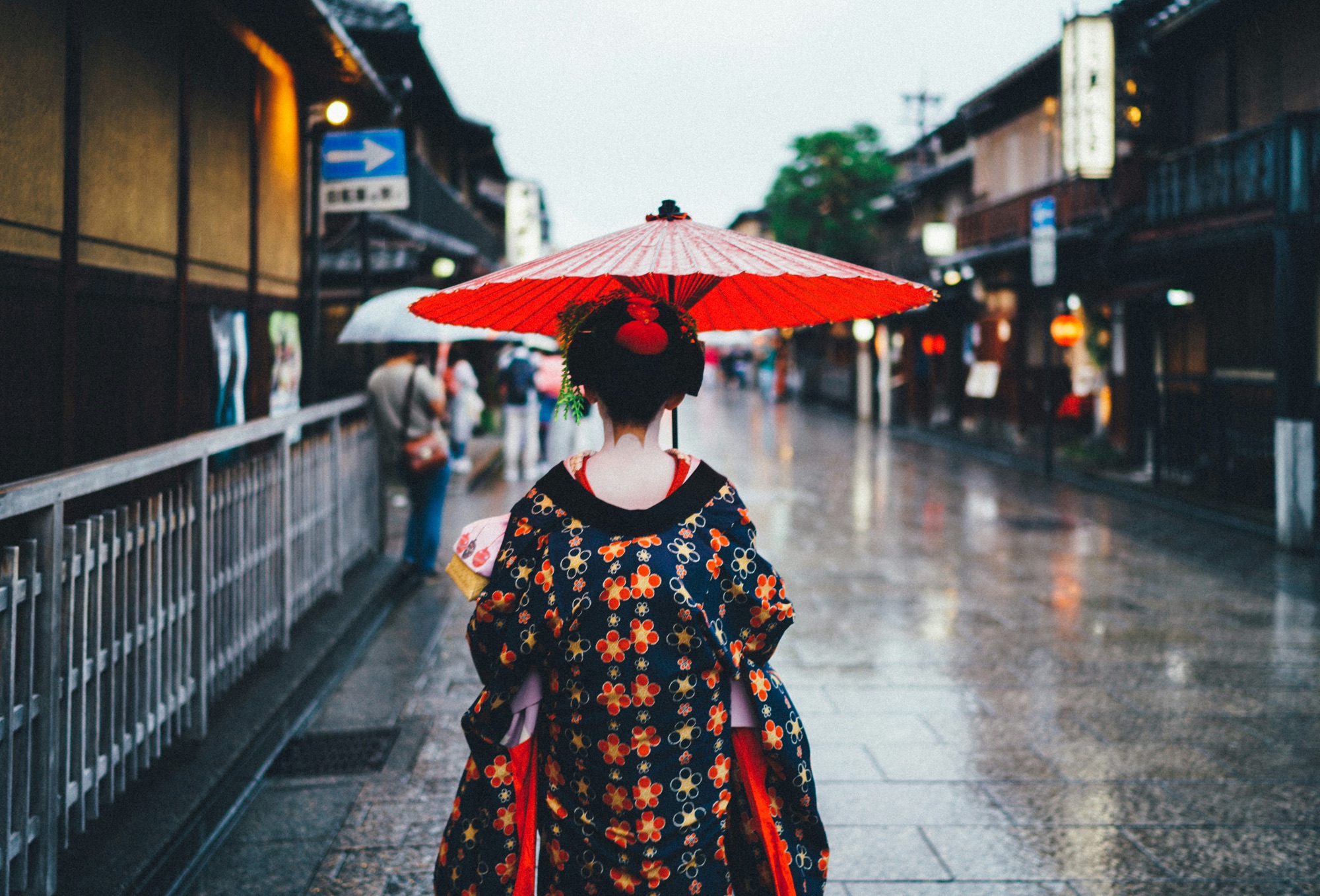Japan is a land of contrasts, where ancient traditions coexist with cutting-edge technology. From the bustling streets of Tokyo to the serene temples of Kyoto, Japan offers a diverse range of experiences. However, Japanese culture, customs, and everyday life can be quite different from what Americans are used to. To help you navigate this fascinating country, here are 15 essential things Americans should know before traveling to Japan.
1. Respect for Etiquette Is Crucial
In Japan, manners and etiquette are deeply ingrained in daily life. Respect for others is at the core of Japanese culture, and this is reflected in many aspects of behavior. Whether it’s greeting someone with a polite bow, taking off your shoes before entering a home or certain traditional establishments, or speaking softly in public places, following social norms is highly important.
For instance, tipping is not customary in Japan and can even be seen as offensive. Instead, excellent service is a given, and the way to show appreciation is with a polite “Arigatou gozaimasu” (Thank you).
2. Japan Is Extremely Safe
Japan is one of the safest countries in the world. Crime rates are very low, and visitors often comment on how secure they feel, even in large cities like Tokyo or Osaka. Public transportation and city streets are safe to navigate at night, and lost items are often turned in to authorities or the nearest station. This safety contributes to Japan being a comfortable destination for solo travelers, including women.
While crime is rare, always follow basic travel safety precautions, such as being aware of your surroundings and keeping your belongings secure in crowded areas.
3. Cash Is Still King
Despite Japan being technologically advanced, cash is still widely used, and it’s common to pay for things in yen rather than relying on credit cards. Many smaller businesses, local restaurants, and temples do not accept credit cards, so it’s important to have cash on hand, especially in rural areas.
You can easily withdraw cash from ATMs at convenience stores like 7-Eleven or Lawson, as they often accept international cards. Be prepared to carry cash for day-to-day expenses.
4. Public Transportation Is Incredibly Efficient
Japan is known for its world-class public transportation system. Trains and subways are clean, punctual, and cover nearly every corner of the country. The Shinkansen (bullet train) offers high-speed connections between major cities, allowing you to travel quickly and comfortably.
For tourists, the Japan Rail Pass (JR Pass) is a great option if you plan to travel long distances between cities. The pass offers unlimited travel on Japan Railways (JR) trains, including the Shinkansen, and can save you a lot of money if you’re exploring multiple cities.
5. Punctuality Is Highly Valued
In Japan, punctuality is not just appreciated, it’s expected. Whether it’s for public transportation, business meetings, or social events, being on time is a sign of respect. Trains and buses run on precise schedules, and even a few minutes of delay can cause apologies and announcements. Always aim to arrive a few minutes early to any meeting or appointment, as lateness is considered rude.
If you’re catching a train, be sure to get to the platform early, as trains often depart exactly on time.
6. Shoes Off Indoors
In Japan, it is customary to remove your shoes before entering homes, certain traditional accommodations (such as ryokan), temples, and some restaurants. You will typically be provided with slippers to wear indoors, but make sure to leave your outdoor shoes at the designated entrance.
This custom is tied to the belief in cleanliness and separating the “dirty” outside from the “clean” inside. Pay attention to whether you’re entering a space where shoes are expected to be removed and follow local norms accordingly.
7. Quietness in Public Spaces
Japanese culture places a strong emphasis on being considerate in public spaces, which means keeping noise to a minimum. On trains and buses, it’s common for people to sit quietly, avoiding loud conversations or phone calls. In fact, making phone calls in crowded public spaces is generally frowned upon, and most people put their phones on silent mode (known as manner mode) in public transport.
When traveling in Japan, try to speak softly in public places, especially on trains and in restaurants. Maintaining a quiet demeanor is seen as respectful to those around you.
8. Onsen (Hot Springs) Etiquette
Visiting an onsen (hot spring) is a quintessential Japanese experience, but it comes with specific etiquette. Before entering the communal hot spring, you must shower and thoroughly wash your body. Bathing suits are not allowed in traditional onsen, and all bathing is done naked.
Tattoos are still somewhat taboo in Japan due to their historical association with organized crime, so many onsen may prohibit guests with tattoos. However, some onsen are more tattoo-friendly, and many offer private baths as an alternative.
9. Respect Religious Sites and Shrines
Japan is home to countless beautiful shrines and temples, which are important religious and cultural sites. When visiting these places, be respectful by observing certain customs. For example, when entering a Shinto shrine, it’s customary to wash your hands and mouth at the purification fountain before proceeding further.
Inside temples, refrain from taking photos unless explicitly allowed, and maintain a quiet, respectful demeanor. Following the flow of local worshippers and being mindful of rituals will help you enjoy these spiritual sites without causing offense.
10. Be Aware of the Weather
Japan experiences distinct seasons, and the weather can vary greatly depending on when you visit. Spring (March to May) is famous for cherry blossoms and mild weather, while summer (June to August) can be hot and humid, with typhoon season affecting travel plans. Autumn (September to November) brings beautiful fall foliage, while winter (December to February) is cold, especially in northern regions like Hokkaido.
Be sure to check the forecast before you go and pack accordingly. If you’re visiting during the summer, prepare for heat and humidity, and if you’re traveling in winter, especially to places like Sapporo, bring warm clothing.
11. Tipping Is Not Expected
Unlike in the U.S., tipping is not a common practice in Japan. In fact, it can sometimes be seen as rude or confusing. Instead, excellent service is part of the Japanese hospitality experience, and no additional gratuity is needed. If you feel the need to show appreciation, a simple thank you is more than enough.
In rare cases where you do want to leave a tip (such as at a ryokan or for a private guide), it’s customary to place the money in an envelope and present it with both hands as a gesture of respect. However, tipping is generally not expected in any situation, whether it be restaurants, taxis, or hotels, so you can rest assured knowing you won’t need to leave extra gratuity during your trip.
12. Vending Machines Are Everywhere
Japan is famous for its vending machines, which are found on nearly every street corner and in train stations, offering a wide variety of products. While most vending machines sell drinks like green tea, coffee, water, and soft drinks, you can also find machines that sell snacks, ice cream, and even hot meals in some locations.
The convenience of these vending machines means you’ll rarely need to search far for refreshments, and prices are generally reasonable. They are also meticulously maintained, so the machines are always clean and fully stocked.
13. Convenience Stores Are Amazing
Convenience stores in Japan, known as “konbini”, are a traveler’s best friend. Unlike convenience stores in the U.S., Japanese konbini (such as 7-Eleven, Lawson, and FamilyMart) offer a wide range of high-quality food, snacks, drinks, and even basic toiletries. You can grab fresh meals like bento boxes, onigiri (rice balls), and sandwiches at affordable prices.
Konbini stores also offer services like ATM machines, bill payments, and even ticket sales for events or attractions. They’re open 24/7 and can be found nearly everywhere, making them an invaluable resource for travelers.
14. Bathrooms Are High-Tech but May Vary
Japanese bathrooms are known for their high-tech toilets, which often come equipped with a range of features such as heated seats, bidet functions, and even music for privacy. While these toilets can seem intimidating at first, they are easy to use and are designed to enhance comfort.
However, it’s worth noting that in rural areas or older establishments, you may still encounter squat toilets. These are common in public places like train stations or parks. While less common in big cities, it’s good to be prepared in case you encounter one.
15. Japan Is a Country of Contrasts
One of the most striking aspects of Japan is the juxtaposition between its modernity and its ancient traditions. In cities like Tokyo, you’ll see gleaming skyscrapers, futuristic technology, and bustling urban life. At the same time, you can visit centuries-old temples, traditional tea houses, and Zen gardens, offering a peaceful retreat from the busy pace of city life.
Japan’s ability to blend the old with the new is one of the reasons it’s such a unique travel destination. Be sure to explore both the modern and traditional sides of Japan to get a well-rounded experience.
Conclusion
Japan is a country full of rich cultural experiences, technological marvels, and breathtaking natural beauty. From the bustling metropolis of Tokyo to the tranquil shrines of Kyoto, there is something for every type of traveler. By understanding the local customs, embracing the differences, and respecting the deep traditions of Japan, you’ll be able to fully appreciate everything this extraordinary country has to offer. Whether you’re enjoying the quiet of an onsen, navigating the Tokyo subway, or marveling at the beauty of cherry blossoms, Japan is a destination that promises to captivate and inspire.




